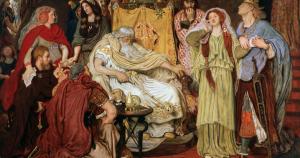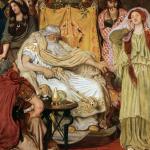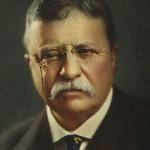
Education begins in wonder, asking the right questions, and never ends. That’s great, but if we choose badly, and many of us choose badly, we might end up needing wisdom, longing for wise guides, but surrounded by (apparent) fools.
Phillip E. Johnson loved to quote The Court Jester where the tyrant says: “Why must I be surrounded by fools?” The answer, of course, is that like is attracted to like and fools have come to answer us in our folly. This seems deeply hopeless and though we are in a bad place due to our own choices, must we lose hope? Fortunately, the good God has created a good cosmos so the dialectic is (almost) always possible.
If we ask good questions, then mayhap even a fool can help us. Why? God’s cosmos is favorable to learning and finding truth. We have to be very far gone to be unable to find the way back to Him. Thankfully, few of us have the means and opportunity to get that lost.
Shakespeare Gives an Image of Hope
Humanist Christian William Shakespeare paints the picture for us. A king turned tyrant fritters away his power and ends up abused and destitute. The two daughters he trusted betray him and Lear ends up homeless in a terrific storm. He finds friends, though, including a good man pretending to be a fool. Edgar, pretending to be a fool, must keep up the pretense, but he can help Lear if Lear will persist in asking questions. Fortunately, Lear is finding his way back to the good, truth, and beauty. He persists in asking questions, bad questions, any questions.
He starts assuming that what went wrong for him, bad children, went wrong for the fool:
LEAR: Didst thou give all to thy two daughters, And art thou come to this?
EDGAR Who gives anything to Poor Tom, whom the foul fiend hath led through fire and through flame, through ford and whirlpool, o’er bog and quagmire; that hath laid knives under his pillow and halters in his pew, set ratsbane by his porridge, made him proud of heart to ride on a bay trotting-horse over four-inched bridges, to course his own shadow for a traitor.
Edgar is not really mad, but must pretend to be so. Lear is fixated on the wrongs done to him, but has not yet seen the wrongs he has done. Lear made this mess, but he is still justifying himself by reducing evils to the evils done to him.
LEAR Has his daughters brought him to this pass? (To Edgar) Couldst thou save nothing? Wouldst thou give ’em all?
FOOL Nay, he reserved a blanket, else we had been all shamed. (….)
Lear says a foolish thing: anyone in trouble must have evil daughters. He has been a tyrant and raised two bad daughters and one good one. He sided with the bad, because they flattered him. He is now at the bottom and beginning to realize his error, but cannot quite yet own that he has been a bad king. Lear wishes to blame other people and since other people are far more vile than he is, that seems easy to do, but Lear is the start of all the evil. He needs to see this truth, but this is hard:
LEAR Death, traitor! Nothing could have subdued nature To such a lowness but his unkind daughters. (To Edgar) Is it the fashion that discarded fathers Should have thus little mercy on their flesh? Judicious punishment: ’twas this flesh begot Those pelican daughters. (. . .)
EDGAR Pillicock sat on Pillicock Hill; alow, alow, loo, loo.
Edgar, who is not really mad, responds with nonsense. Most of us would stop the dialog here: our interlocutor is crazy and crazy people are generally not insightful. Yet Lear knows, as all Christians do, that there is the holy fool: the man who speaks truth in ways a culture cannot hear, in words that sound like nonsense, but are really jarring to the elite.
Lear asks the key question in the play:
LEAR What hast thou been?
EDGAR A servingman, proud in heart and mind, that curled my hair, wore gloves in my cap, served the lust of my mistress’ heart, and did the act of darkness with her; swore as many oaths as I spake words, and broke them in the sweet face of heaven; one that slept in the contriving of lust, and waked to do it. (…)
LEAR Thou wert better in a grave than to answer with thy uncovered body this extremity of the skies. Is man no more than this? Consider him well. Thou owest the worm no silk, the beast no hide, the sheep no wool, the cat no perfume. Ha, here’s three on ’s are sophisticated; thou art the thing itself. Unaccommodated man is no more but such a poor, bare, forked animal as thou art. Off, off, you lendings! Come, unbutton here. (…)
This exchange transforms Lear and could change us if we too would persist in asking questions. Lear moves beyond himself and questions this battered, storm tossed, (seeming) fool, about what this apparent fool has been. The answer is long, mostly nonsensical, but triggers growth in Lear. Why? Lear is no longer repeating his grinding, endless self-justifications: he is asking about someone else. Why is this fool a fool? Maybe, just maybe, everything isn’t the fault of bad daughters!
LEAR What’s he?
KENT (to Gloucester) Who’s there? What is’t you seek?
GLOUCESTER What are you there? Your names?
EDGAR Poor Tom, that eats the swimming frog, the toad, the tadpole, the wall-newt and the water; that in the fury of his heart, when the foul fiend rages, eats cowdung for salads, swallows the old rat and the ditch-dog, drinks the green mantle of the standing pool; who is whipped from tithing to tithing, and stocked, punished, and imprisoned; who hath had three suits to his back, six shirts to his body, Horse to ride, and weapon to wear; But mice and rats and such small deer Have been Tom’s food for seven long year. Beware my follower. Peace, Smulkin; peace, thou fiend!
LEAR First let me talk with this philosopher. (To Edgar) What is the cause of thunder?
Lear has found a “philosopher,” a lover of wisdom. How? Edgar (in his guise as a fool) has not said “Wise Things,” but has forced Lear to realize that he has nothing better. Edgar (as a fool) says nonsense and that is what Lear realizes he has.
Lear learns what we all must learn: we are all ignorant. We must always recollect that the known Unknown is not known fully by us. We are children of God and God is beyond our imagination.
————————————-
*Shakespeare, King Lear 3.4.
King Lear gives readers a truth telling Cordelia, the heroine we need just now, a happy ending if you are a regular person, even if the rulers suffer for their sins, and lessons in what not to do as an aging leader.












